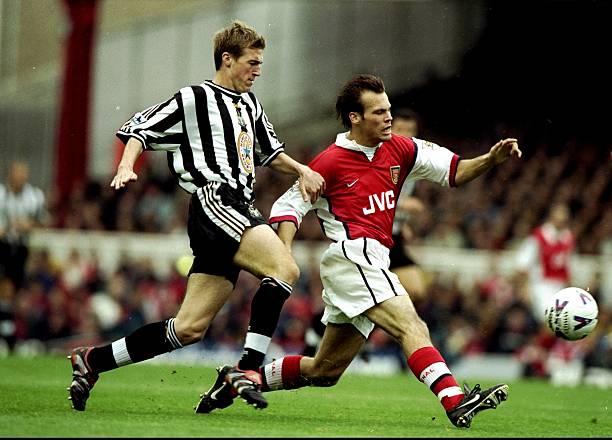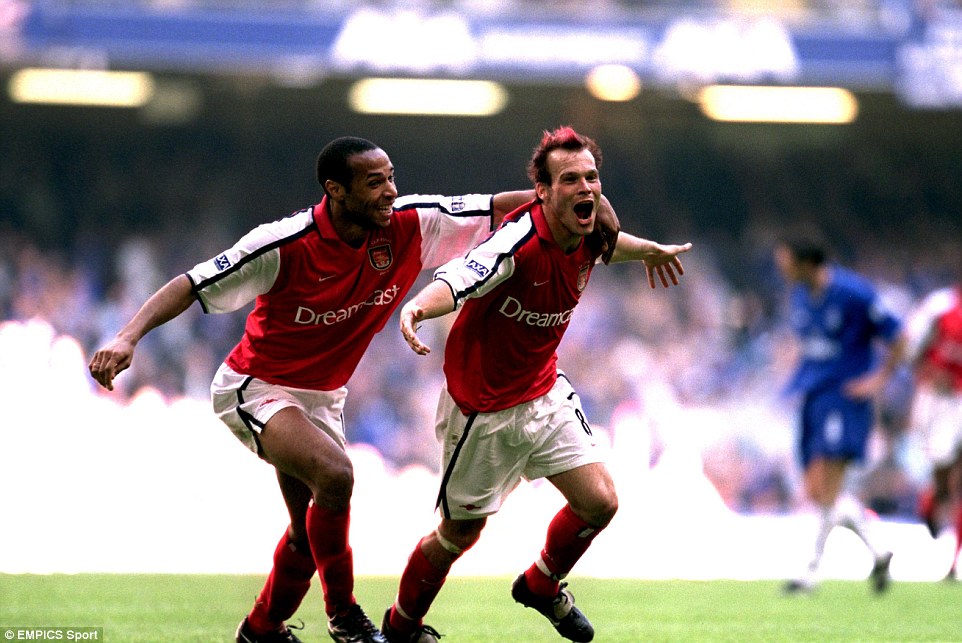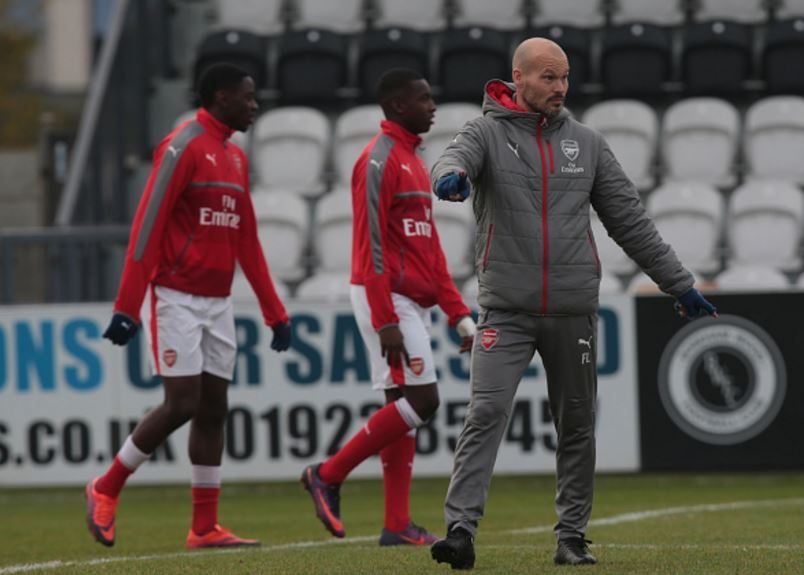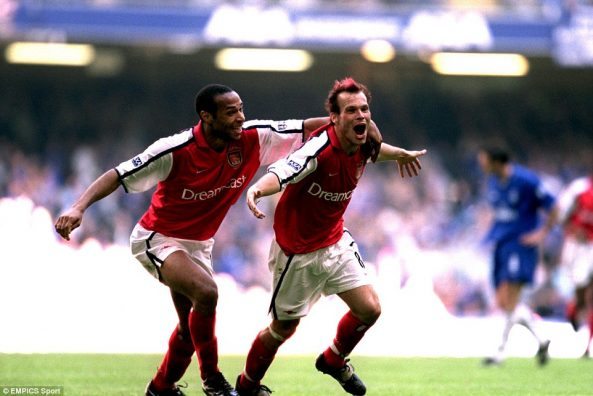In an interview given to the Arsenal matchday programme, Freddie Ljungberg revealed how it felt to sign, play and score for Arsenal while watching fans, even policemen, sport red mohawks in his honour.

His arrival was unusual given the manner of the transfer, but the Swedish international joined for a reported fee of £3m after impressing during a victory over England.
Arsène Wenger moved swiftly to ensure he signed his man and his performance against the Three Lions further justified suggestions that he’d be able to cope with the ever-increasing pace and intensity within the English top flight.
Decisions and a sign of appreciation
“On the Monday I was due to meet with Arsenal. On Tuesday, the Italian champions. On Wednesday, the Spanish champions. I had to decide what was right,” Freddie explained in a feature for an issue of Arsenal’s matchday programme in 2017.
“So I met Arsenal and had a personal meeting with Arsène Wenger. We talked football, not money. I don’t even remember my salary, if I’m honest. It was just about the football – it made the decision for me.”
Within a week of him putting pen to paper on his contract, he was named as a substitute to face Manchester United. Given a 20-minute cameo to showcase his abilities to the Arsenal faithful, he admitted nerves were a factor but was thankful to score during a 3-0 victory.
“I’m a pretty laid back guy but I have to be honest, that week I was so nervous. I was literally shaking. After about 20 minutes the fans started singing my name and I thought ‘Oh God, please no’ because I was so nervous.”
His family were just as nervous as him, and refused to go to the game, instead going out to wash their car during the match.
“Apparently when I scored one of their neighbours ran out of their house screaming at my parents: ‘Freddie’s scored!'” he revealed.
He described his connection with the Arsenal supporters as ‘great’, which was justified given what some had done in the build-up to their 2002 FA Cup final in Cardiff.
“I fell asleep on the coach and I remember some of the guys waking me up as we arrived near the Millennium Stadium. ‘Freddie, look at this’, one of them said, tapping on the window. It was incredible. Arsenal fans, young and old, all had red hair – just like me. I remember that moment vividly. That is a memory, a moment that I had never experienced before and never experienced since.”
“I even remember at the parade in Islington after the game when a police officer took his helmet off and had a red mohawk! What can I say? It’s an honour.”
An unforgettable week
The game itself ended as a 2-0 victory for Arsenal over London rivals Chelsea, with Ljunberg’s fantastic effort sealing the win in the 80th minute.
He identified what stood out for him besides the finish, saying, “What I remember about that goal was Lee Dixon, who was warming up behind the goal, wheeling away in celebration before the ball hit the back of the net. It curled out of the post and back in before hitting the net and Lee saw it was going in before anyone else, because of where he was stood.”

“I had scored in the previous year’s final (defeat against Liverpool) and had done it again,” Freddie continues. “I had one beer after the game, that was all, as we had another big game the following week at Old Trafford. We won the game, won the league and won the double. We had wanted to do it so badly for the fans – it was a very special week.”
Worst moment of Freddie’s playing career awaited in Paris
Arsenal were initially a goal ahead, but conceded twice in the last twelve minutes to Barcelona in the UEFA Champions League final during the Invincibles season.
Jens Lehmann’s dismissal was a significant turning point as it made the match a very tough one following on from that, but Ljungberg reflected on why they could’ve “put the game to bed.”
“The first thing to say is that I went into that game 100% sure we were going to win it. I knew we could attack them, I knew I could beat their players,” Freddie explains. “But we could not get that second goal and then Barcelona got two goals in the last 12 minutes. The one thing that great Arsenal team did not win was the Champions League – and we could have. It is so disappointing as that team was capable of doing it. But we came up short and even though we played very well in Paris, the scoreline was 2-1 to Barcelona. That is all that matters.”
Ljungberg left to join West Ham in the summer of 2007 and since his retirement from professional football in 2012, has returned in a coaching capacity whilst taking up an ambassadorial role with the club that helped him achieve legendary status. Slowly, slowly, he moved up the coaching ranks and now finds himself in charge of the whole lot.

“I’ve been back here for four or five years, it is a great honour for me. I feel I have grown as a human being. I feel I have grown as a human being. I have travelled the world in my role, meeting politicians and ambassadors,” he said in 2017.
“I love the club and it has been a new thing for me [as a coach]. What has been very important to me is the work with the Arsenal Foundation. The charitable work this club does is so important to so many people. The ethos is to help people, regardless of who they are, and where they are from.”
The then-39-year-old continued saying, “When you play, you don’t really get the opportunity to spend time helping in this kind of way. But now I have retired as a player I have done and it is so rewarding.”
Although he didn’t achieve ultimate glory by winning the Champions League, Ljungberg has used his status as a role model to good effect since retiring from the game and is a commendable figure – one that Arsenal are lucky to have.

